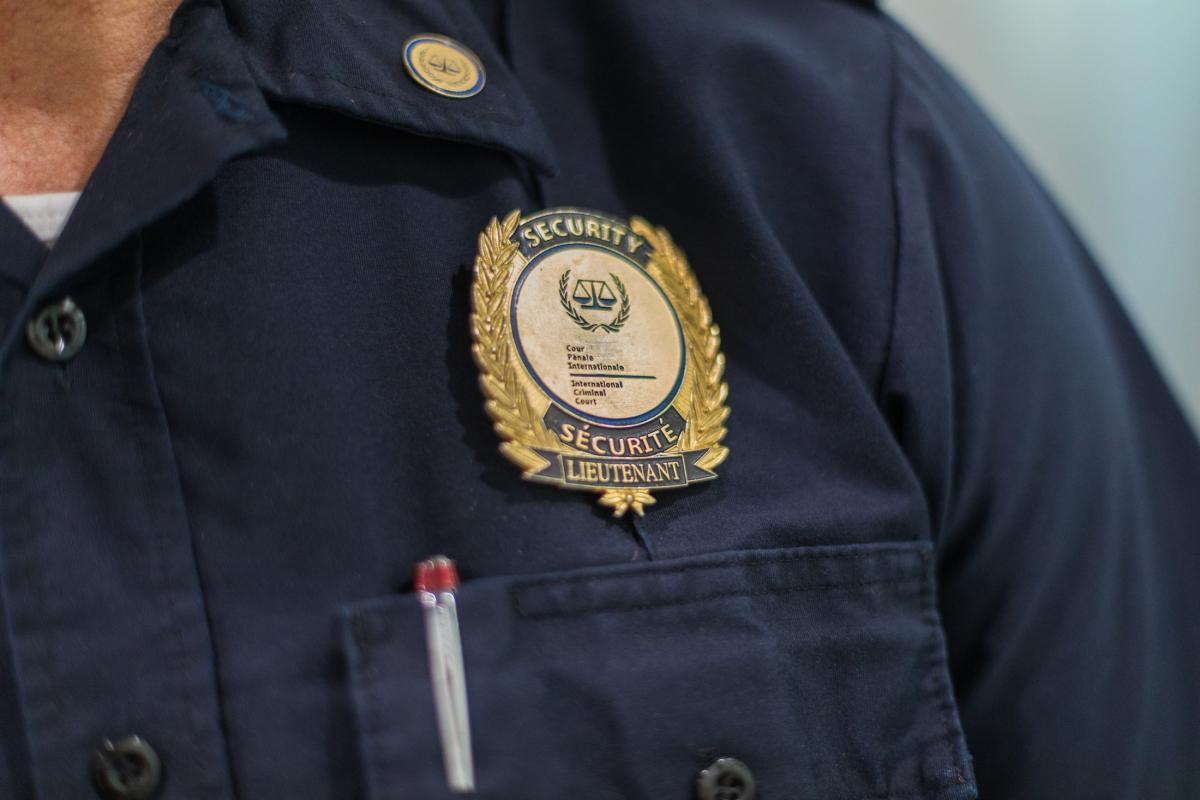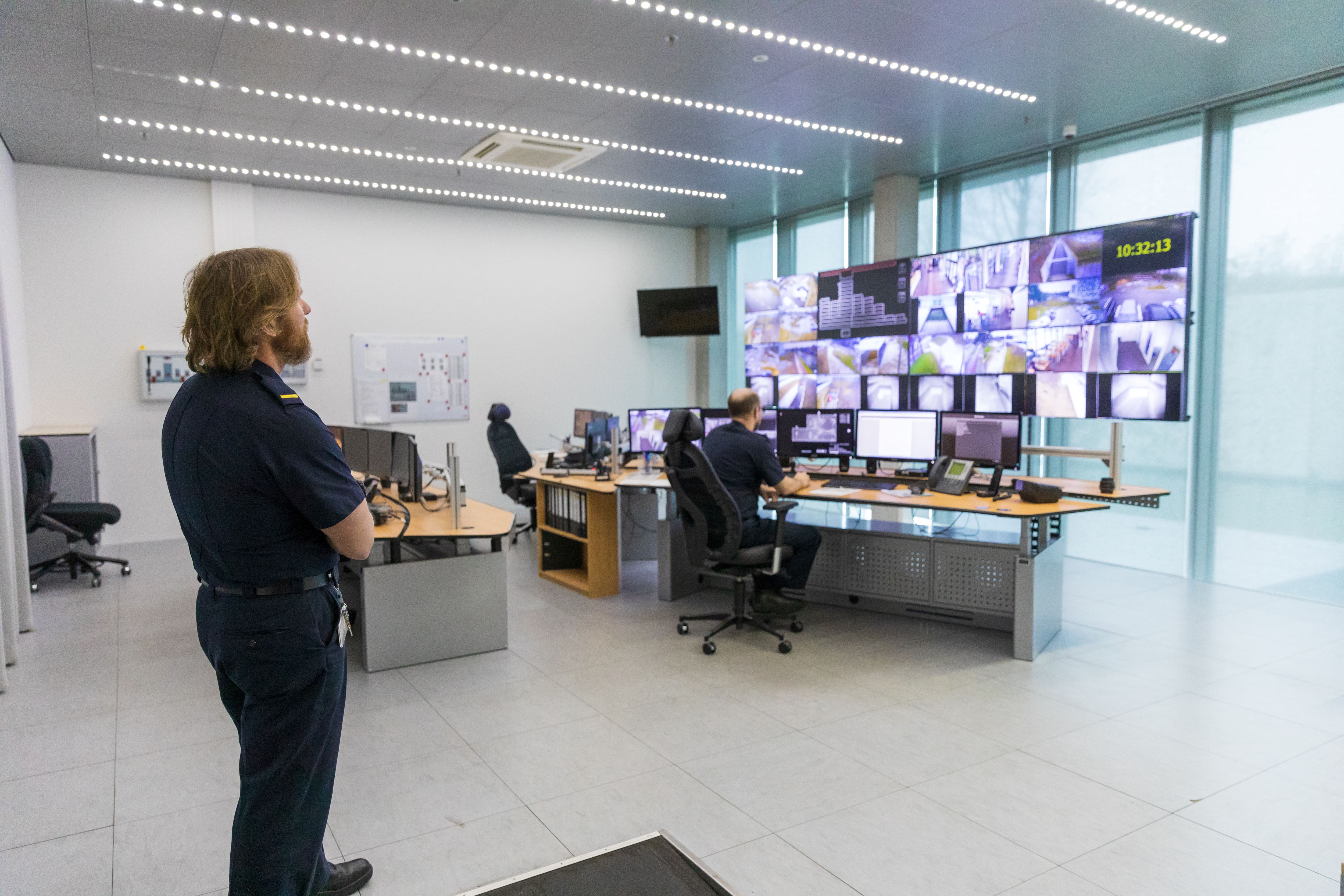
Within Security there is never a time really to relax. You’ve got a huge responsibility. So you are always a little bit on edge. Assessing the situation as it evolves, constantly scanning the scene for possible dangers, ready to step in if need be. You think of others’ safety, so they don’t have to.
My name is Peter and I am a Court Security Lieutenant within the Security and Safety Section of the ICC.
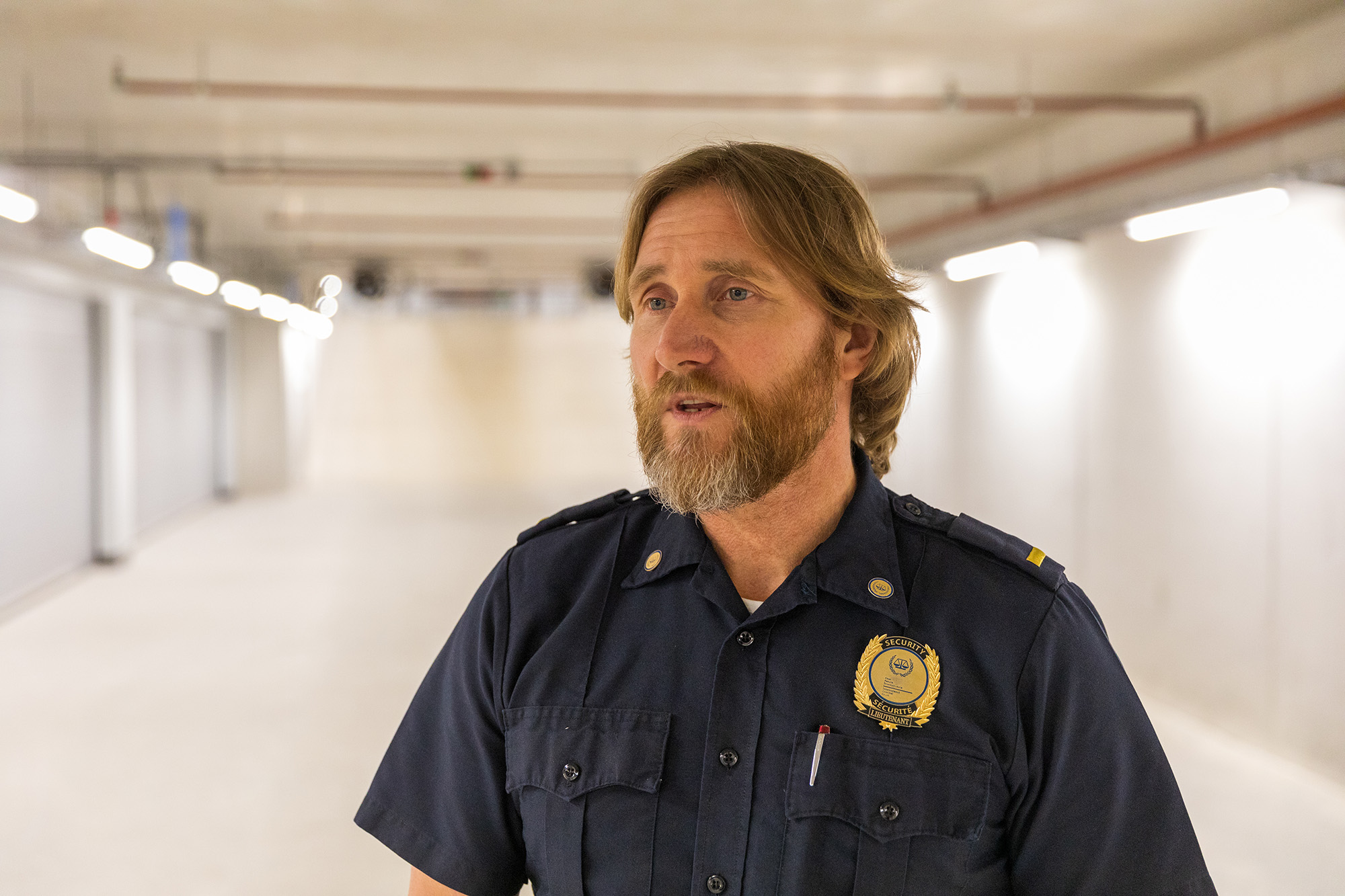
A safe Courtroom
You could say our job starts with safety in and around the Courtrooms. So, we ensure that in the Courtroom itself – when there are witnesses or detained persons inside – that everybody can work safely.
Of the three Security Officers inside the Courtroom, just one – the one nearest the judges’ bench – is responsible for the safety and wellbeing of everyone in the room. That person is fully equipped with necessary security, safety and personal protection equipment. If there is a fire or other emergency, that Officer gets everybody out. If someone has a heart attack, needs CPR or even just gets overheated and faints, that Officer is the first responder.
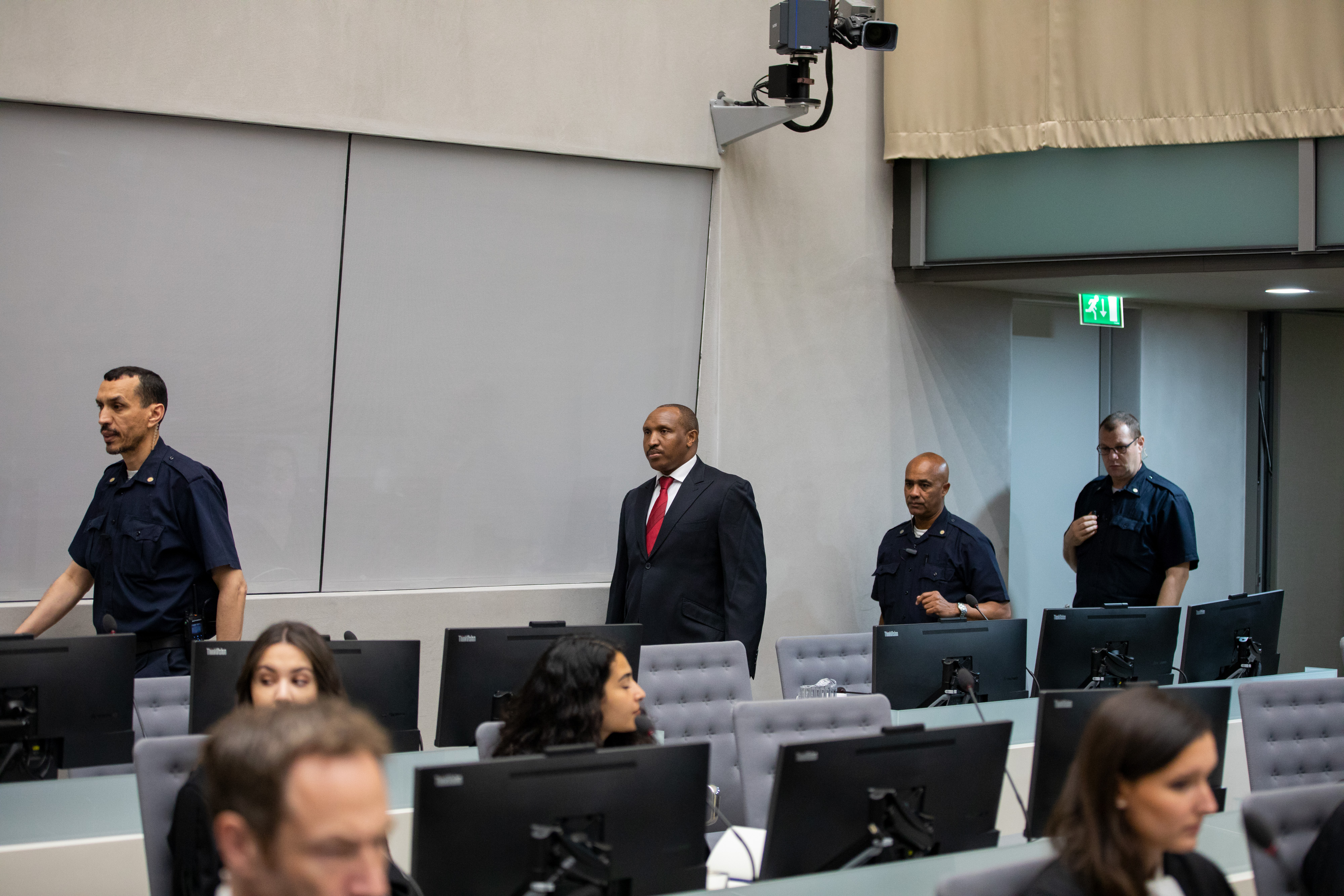
Then there are two Security Officers on either side of the accused. They are purely focused on, as we say, the detainee. When the detainee stands, the Security Officers stand. If the detainee gets emotional or aggressive, the Security Officers respond.
When there is an adjournment, they take him or her behind the Courtroom to the break room. That room has a small table, a toilet and a twin sized bed so the detainee can rest. The officers are equipped to deal with all situations. They are trained in control and restraint, and there is also what you might call a sophisticated “panic button” in case an Officer needs to call for back-up.
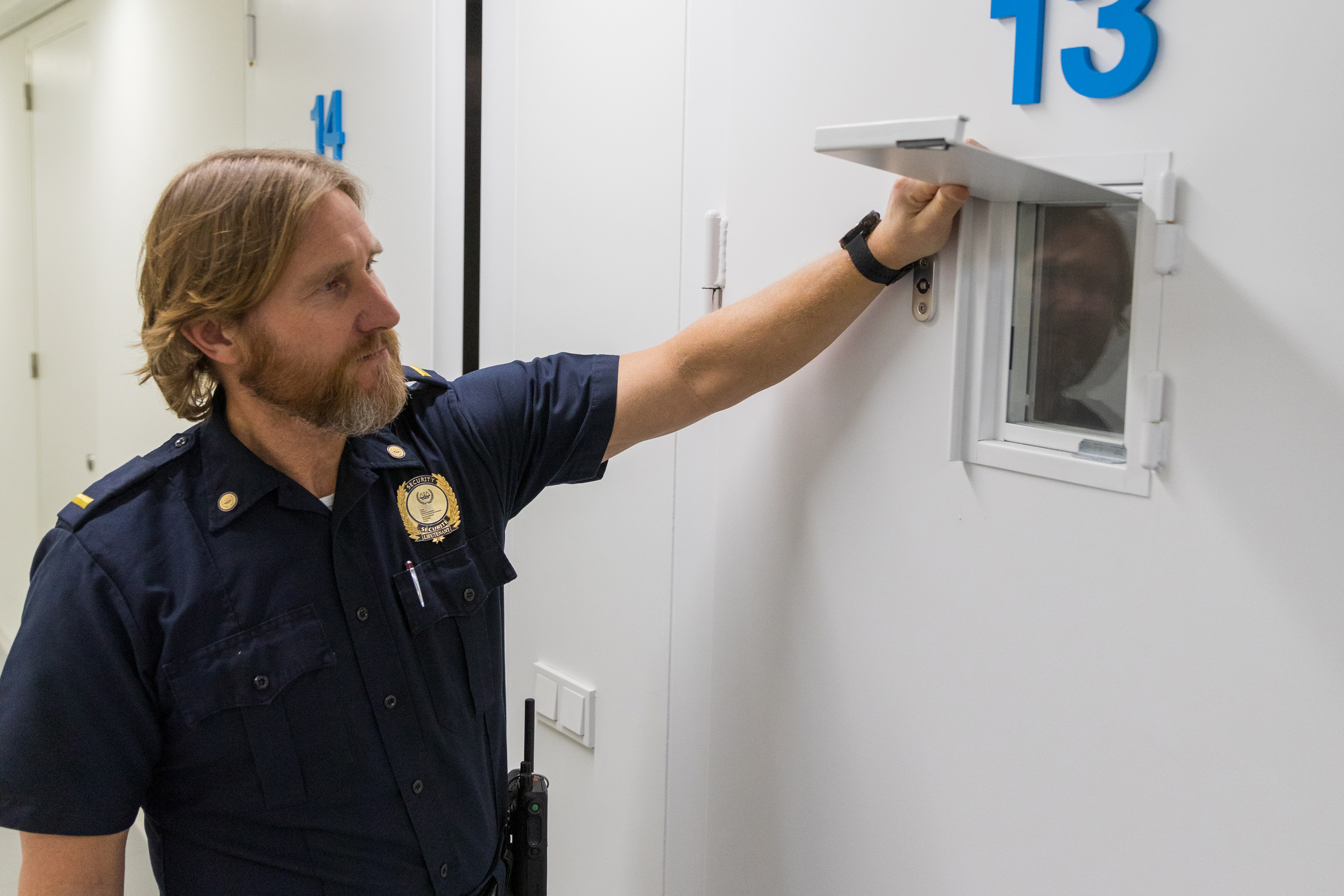
But generally the idea is to ensure the detainees are secure and safe – comfortable, cooperative and healthy – and get everything they are entitled to. The detainees get lunch and can meet with their lawyers. The Officers bring them back into the Courtroom on time. They follow instructions from the Presiding Judge regarding where the detainee should be and when. Each move is communicated by radio with the Control room operator – without that coordination, Security couldn't do their jobs. Excellent communication. Short lines. Constant cooperation.
These Security Officers are part of the special team assigned to receive the detainee from the Dutch authorities. We do not transport the detainee to and from the Detention Centre ourselves, that is done by the Dutch. But once they enter the ICC building, we take over that responsibility. They are in our custody.
Arrests and transfers
There is another special team that helps get that person into our custody in the first place. We don’t ever make arrests – the national authorities do that. But once a suspect is arrested, we travel to the country where the arrest took place and they hand the suspect over to us.
Several ICC Security Officers are on the transport team that brings the suspect to The Hague. Others on the team include a doctor, who checks that the suspect is well enough to travel, and a legal officer, who ensures the suspect’s rights are respected and deals with diplomacy and cooperation with the national authorities. Everyone has their role. We make sure that everything is in place and safe. It’s an intense operation. And every time, depending on who the suspect is and what country you are in, it will happen differently. It’s never as you expected.
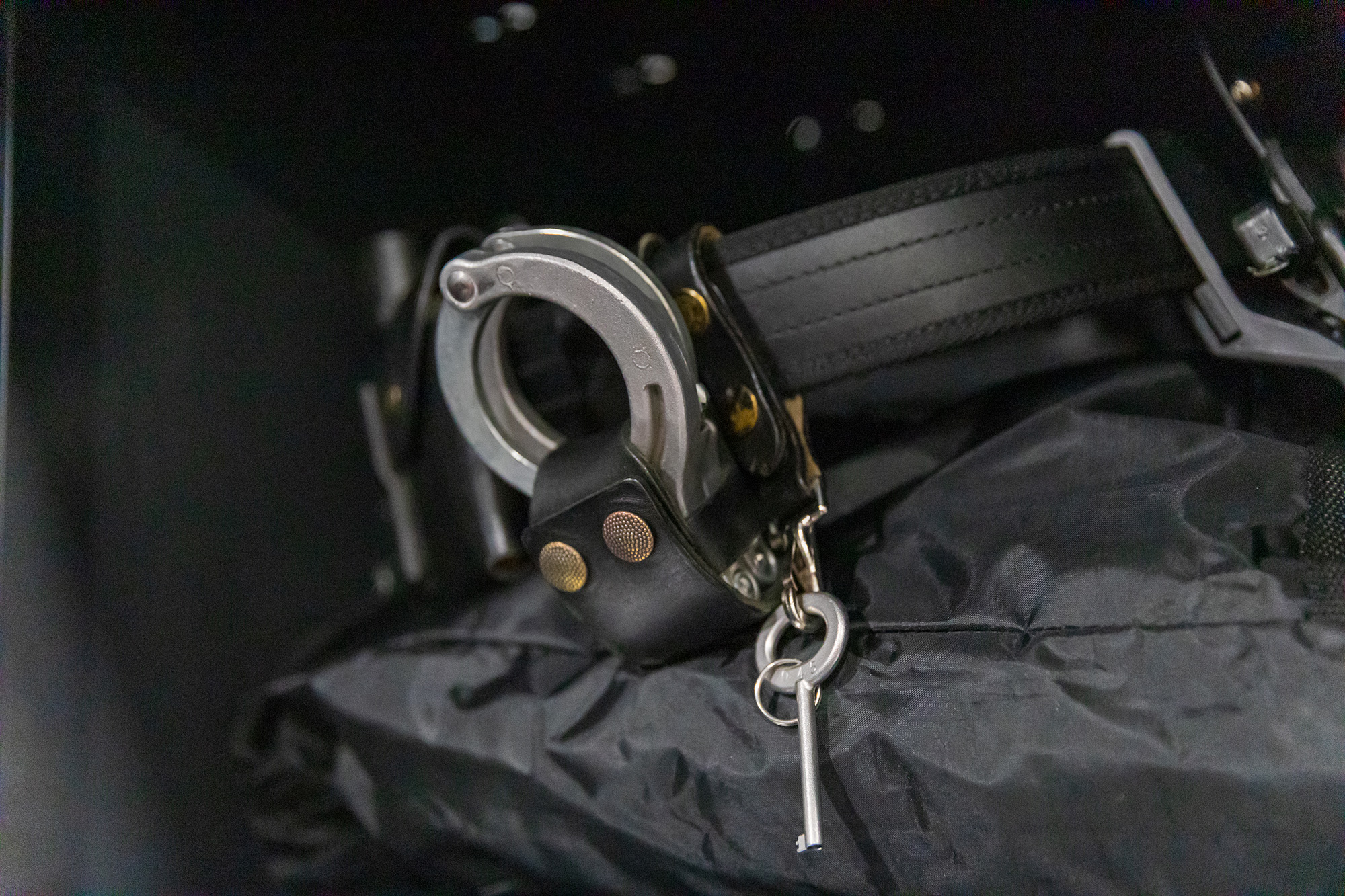
As just one example: Imagine arriving at the meeting spot, say, a huge empty building in an obscure area with only one small adjacent building in sight. Slowly you start to see yourself surrounded by people in uniforms you’ve never before seen.
If the suspect was part of a military or rebel group, there could be both local police and special forces involved. They have remarkably sophisticated weapons and fire power, what you might only see in the movies. Some have their sleeves rolled up, muscles flashing. Others are looking tough, sitting on the hoods of jeeps. And it’s not just 1 jeep, but 25 of them surrounding the building.
Then the commander arrives, twice as tall as the general officer, bigger, more muscular, with an aura that simply states “I’m in charge.” And you look around, with the soldiers and uniforms and weapons and muscles, and are suddenly glad they are your allies, that they want to hand the suspect over to you … you appreciate diplomacy in a new way.
Finally, you see the suspect, who is brought from the adjacent building. He is usually quiet. Wondering if he is safe. As overwhelmed as you are by the entire scene, except to him, we are the big unknown. We talk to him, explain what will happen, and slowly get him a little more comfortable with everything, so he knows he is safe with us.
We check that the suspect does not have concealed weapons, but at this point, it is more likely that there will be threats to him, not from him. We check if the national authorities know of any threats on the suspect’s life. If so, we take additional security measures to protect him. Even just to get him to the plane safely, you have to think through how to position yourself, where you walk in relation to that person, and in relation to where potential danger might come from.
Once we are on that plane, and the suspect is safely in our custody, everyone else can start to relax. We in Security relax once the suspect is safely in the Detention Centre in The Hague.

Close protection
Then there is also the close protection team. They protect, say, the ICC President or other VIP, while on mission in the field. They also do a lot of planning. So they go in advance, traveling the routes, checking the hotels and event venues, going to the villages and homes and communities the VIP will visit, and ensure that conditions are secure and properly prepared before the mission takes place. Then the VIP arrives and it’s game on, 24/7. No rest until the VIP is safely back at home.
Depending on where the mission is, you may be facing political instability, unrest and AK47s. And it’s your job to ensure the VIP is safe. They’re not your average circumstances and if you’ve only been trained in a place that is stable and secure … you have no clue. In some places there are no roads, only helicopters, and barely a place to land. And you have no deep insight into exactly who is on the ground, because it keeps changing by the hour. There might be rifle practice at the next security checkpoint. You could be dealing with rebel forces, criminals – anything can happen.
In close protection, you always expect the worst, and that is what you try to anticipate. You constantly scan for possible dangers. When you walk through the street, you don’t look at people’s faces first - you look at their hands. What are they carrying? How is their posture? Then look at their face: Do they have a normal expression, or do they look angry? A car passes by: How fast? Who is in it? You talk to the event organizers: What are their security measures? Where is the emergency exit? Escape route? Where is your car? Even at night, you monitor the hotel hallways instead of sleeping. You are on top of everything, you are constantly looking around. You communicate the best that you can with the person you are protecting, so they are not making too many unexpected moves or decisions – and you make sure everybody is aware why security is there.
With experience, you start to know, to have a sense of what is safe and what you can allow. Sometimes you are too careful, but you make the best decisions you can with the information you have. If conditions stay within expectations, it is fine. If circumstances look like there is even a chance that you will not be in control, you get the VIP to your vehicle and get out.
Best case scenario, nothing happens and the person you protect goes home and forgets all about you. If you do find yourself in a sticky situation together, you may find that, even a few years later, you pass in the hallway and smile. But that’s it. No special connection or friendship. You are there to protect them. It’s your job.
An eye opener
Being Dutch, I was raised in a very safe environment, and over the years I sort of became a Jack of all Trades within Security at the ICC. So, back when I was the Security Officer in the Courtroom, I listened to the testimonies of witnesses and of the accused.
Then later, as a Close Protection Officer assigned to protect the President or the Registrar on mission, I was allowed to actually visit the countries they were speaking about in Court and to actually see the graves or the areas where people had been murdered. And let me tell you: that changes you. And when you then come back to Holland, back to an environment where everything is safe and well organized, you see it differently. You appreciate the safety everyone else takes for granted. It’s humbling.
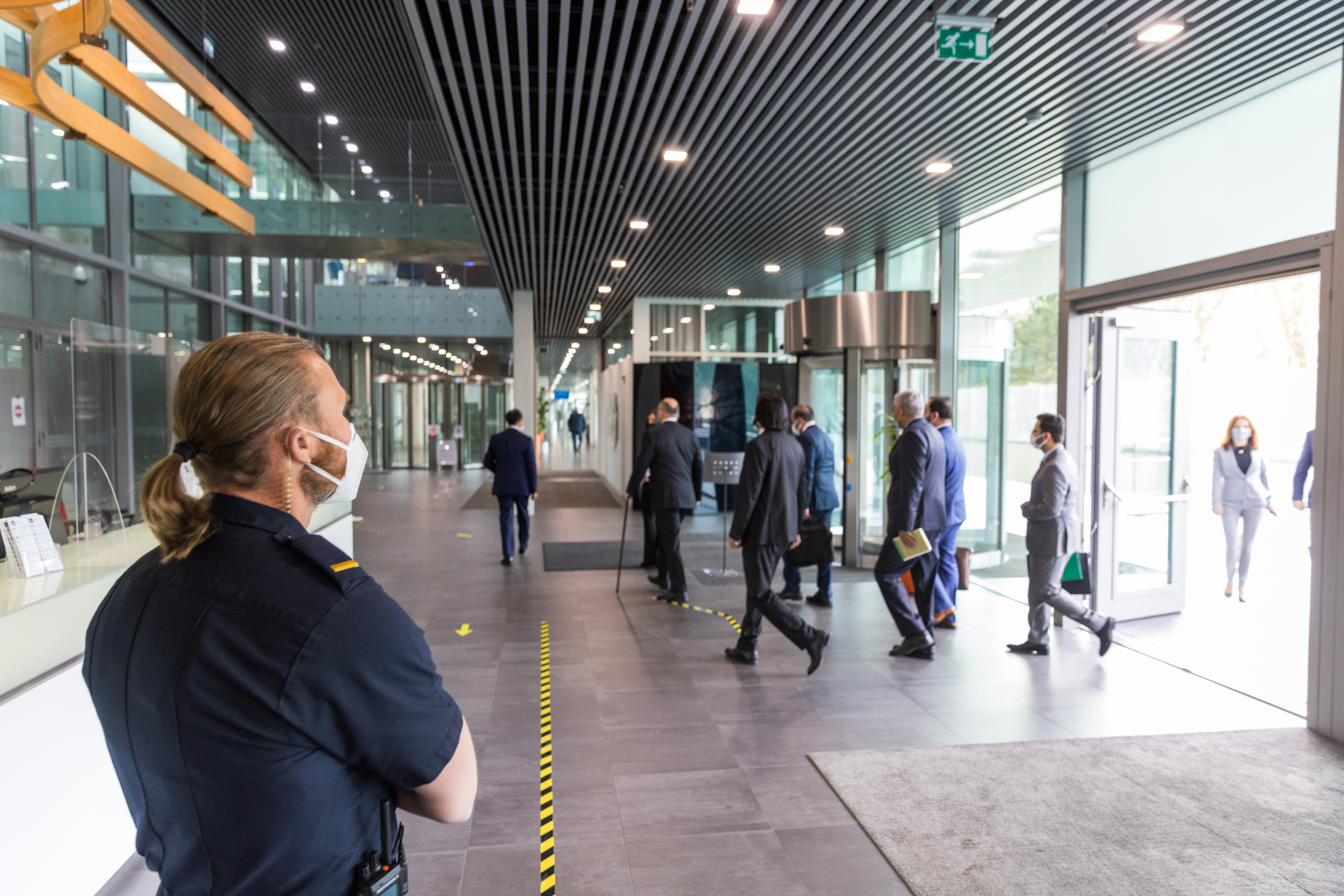
On justice
Being exposed to the task the ICC set for ourselves to work for justice and bring to justice people who committed almost sometimes unspeakable crimes… I do believe our work makes a difference. It’s rewarding to just be a very small part of that big machinery called the ICC.
And if we are … if I am able to contribute only a small part of getting that justice done, then I think that I’m in the right place and that I’ve earned my pay check.

